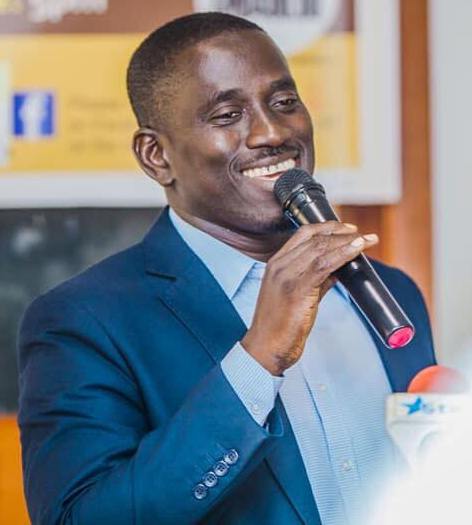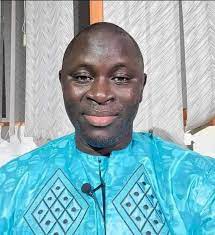
It is Saturday morning here in Washington, D.C., and as I lay languidly on my plush, sapphire-blue Chesterfield couch, a masterpiece of Victorian design with its deep buttoned back and scrolled arms, I am sipping a steaming cup of Earl Grey tea, the delicate bergamot aroma wafting through the air.
My mind whimsically drifts to The Gambia. Yes, The Gambia, where Adama Barrow reigns as president, watching his former critics join his party like characters from George Orwell’s “Animal Farm,” seamlessly transitioning from vocal pigs to compliant sheep.
The irony is as thick as the plot of a Dostoevsky novel, where those who once roared against tyranny now purr contentedly in the lap of power.
Few actors in Gambian politics have managed to perform a volte-face with as much theatrical flair as Momodou Sabally and Ismaila Ceesay.
These erstwhile stalwarts of opposition, once vocal in their denunciations of President Barrow, now find themselves ensconced in the very cabinet they once decried.
Sabally, in the role of Presidential Adviser, and Ceesay, as Information Minister, are the newest additions to Barrow’s court—a transformation as startling as it is predictable to those attuned to the rhythms of political survival.
Their sudden embrace of the very power structures they once opposed reveals a level of cynicism that is both breathtaking and banal.
For them, principles seem to be as fluid as the allegiances in a Shakespearean court, shifting with the winds of political expediency.
It is a narrative reminiscent of Orwellian doublethink, where the most vehement critics transform into the most obsequious sycophants.
Indeed, their journey evokes the farcical rise and fall of characters in a Pinter play, where duplicity and self-preservation are the only constants. The once indomitable Sabally and the vociferous Ceesay, champions of the common good and relentless critics of governmental overreach, have undergone a metamorphosis worthy of Kafka—not into giant insects but into the very embodiment of the mediocrity they once railed against.
The spectacle is nothing short of tragicomic, as these men, who once styled themselves as defenders of the public interest, now find solace in the cozy embrace of the establishment.
Their flipflopping is a reminder that in politics, as in life, the line between hero and hypocrite is often perilously thin.
In Sabally’s case, his trajectory mirrors that of a tragic Shakespearean character, whose vaulting ambition leads to a downfall marked by irony and self-betrayal.

As a Presidential Adviser, Sabally now occupies a position that demands the same sycophancy he once condemned. His voice, once a clarion call for justice, now resonates with the hollow echo of political expediency. Sabally, who once proudly dubbed himself “The Gambia’s Pen,” now wields a pen that is poisoned, polluted, and pointless, scribbling not what is right, but what is politically convenient.
His once profound statements have been supplanted by the banal refrain, “The youths are happy.” But happy for what? It is as if he is mocking them, suggesting they should share in his twisted sense of satisfaction. Sabally might as well declare, “I am now happy where I am. I am now hobnobbing with the powers that be, roaming the State House like a sycophantic courtier, basking in the reflected glory of my new patrons.”
His transformation is as absurd as that of Estragon and Vladimir from Beckett’s “Waiting for Godot,” endlessly anticipating a redemption that never arrives, their conversations reduced to meaningless platitudes.
Sabally’s metamorphosis is also reminiscent of Macbeth, whose vaulting ambition ultimately led to his downfall. Like Macbeth, Sabally’s ambition has driven him to compromise his integrity, trading his principles for proximity to power. Just as Macbeth’s soliloquies reveal a descent into madness and moral decay, Sabally’s public pronouncements now echo with the hollow sound of political expediency.
Sabally’s illustrious career under the autocratic regime of Yahya Jammeh reads like a tragicomic farce penned by the likes of Evelyn Waugh.
He held numerous positions, including Director of Budget at the Ministry of Finance, Secretary General, and Head of the Civil Service. His tenure culminated in his role as Director General of the Gambia Radio and Television Services (GRTS) until his arrest.
This man, once a cornerstone of Jammeh’s administration, later sought refuge in the United Democratic Party (UDP), where he rose to the rank of Campaign Manager, earning the moniker “Baba La Commando.”
Little did the UDP faithful know that Sabally was merely biding his time, eyeing a cozy seat next to Barrow. His departure from the UDP was as inevitable as the changing of the seasons, a quintessential case of “jumping ship” when the opportunity for self-advancement presented itself.
In hindsight, his actions appear not just calculated, but almost Machiavellian in their cunning.
Ceesay, meanwhile, was a vocal university professor, speaking out against what many considered the moral and ethical failings of the Barrow administration. Later, he set up his own political party, the Citizens’ Alliance (CA), but his leadership was not without questions, reeking of political expediency rather than genuine reform.

The national president of his party, Dominic Mendy, resigned, citing, “After thoughtful reflection of the problems of trust that our party is going through, coming mainly from the fact that as a party we have deviated from our values, I am convinced that continuing to be a member of this institution in the false sense of a value system, is an act of dishonesty to members of the party and the general public,”
Dominic Mendy outlined in his resignation letter to CA. He added, “Given, therefore, my inability to live what I am not as is already revealed in the conduct of the party. I wish by this letter to convey to you the general party membership and the public of my resignation from the national executive and membership of the party.”
Mendy’s resignation is a dramatic act reminiscent of Peter Finch’s character in the film Network, who famously declared, “I’m as mad as hell, and I’m not going to take this anymore!” His departure underscores the deep fissures within the CA and highlights Ceesay’s political expediency.
Ceesay’s tenure at the University of The Gambia (UTG) adds another layer to his questionable conduct. Despite his role as a lecturer, he failed to uphold ethical standards by engaging in what Americans would whimsically dub “double dipping” – drawing his UTG salary while simultaneously accepting hefty campaign funds.
This behaviour contradicts the principle of professional integrity, as he should have resigned from his academic post before entering the political arena.
Ceesay’s position as Information Minister places him at the helm of the very propaganda machinery he once sought to dismantle. The smart among us, who saw through the veneer of his professed ideals, knew it was only a matter of time before he too crossed the Rubicon into political opportunism.
Ceesay’s manoeuvring, though strategic, has left him bereft of the authenticity that once lent him credibility. His speeches, now laced with the very rhetoric he previously denounced, resemble the hollow declamations of a character in a Beckett play, trapped in an endless loop of self-justification.
His actions evoke the image of Fagin in Dickens’ Oliver Twist, leading the naïve and hopeful astray for his own benefit. His transformation from a voice of reason to a parrot of the administration is a stark reminder of the corrupting influence of power.
Then there is Ahmad Gitteh, who sometimes reminds one of the child in Willy Wonka & the Chocolate Factory, who feels so entitled and when he doesn’t get his way, becomes belligerent and rants like a spoiled brat.

Recently, on Kerr Fatou media during its grand Bantaba, a whole show was dedicated to the issue of Gitteh reconciling with the NPP. But wasn’t this the same Gitteh who swore on the holy Quran and made all sorts of promises that he would never be in the same camp with AdamaBarrow and his underlings?
For those who are coming to the party, let’s cast our minds back a few months to the local government elections when Gitteh’s nomination was nullified because the NPP opted to field Seedy Ceesay to contest against Yanks Dabo for the Brikama Area Council. Gitteh and his few supporters came out in the open to cry blood.
Most of the gullible among us quickly came to his defense and even accused the NPP of wrongdoing. But the reality is that Gitteh stands for nothing besides his own self-interest.
If we take a few years back memory lane, Gitteh was Jammeh’s boy-boy, a praiser until he was awarded a full scholarship to study in Canada. Then the change of regime came in 2016, and he threw his full weight behind the UDP, taking every opportunity for a photo-op with Ousainou Darboe as if he was a die-hard supporter.
Like the character Mercutio in Romeo and Juliet, Gitteh’s allegiance shifted with the wind. He switched to supporting Barrow and casting stones at the UDP. But he left his footprints and DNA all over the internet, where he publicly insulted and disrespected former President Jammeh, former Vice President Ousainou Darboe, the President, and his entire family, including First Lady Fatoumata Bah Barrow. Why are we so easily fooled as Gambians? Is this what we call quality politicians?
In the classical Greek literature, intellectuals were revered for their wisdom and insight, often portrayed as luminaries of enlightenment in society. In Homer’s “The Odyssey,” for instance, characters like Mentor and Nestor are depicted as wise counselors whose words carry great weight among their peers.
Similarly, in Plato’s “Dialogues,” Socrates is revered for his intellectual prowess and his commitment to seeking truth and wisdom.
However, despite the esteemed position of intellectuals, figures like Sabally, Ceesay, and Gitteh have fallen short of upholding the noble tradition of using knowledge for the common good.
While they may boast of their university education, their actions reveal a stark departure from the ideals espoused by intellectuals.
As Noam Chomsky aptly remarked, “The responsibility of intellectuals is to speak the truth and expose lies.”
Instead of using their education to serve society, these individuals have chosen the path of self-interest and deception, betraying the trust and expectations placed upon them.
These individuals have shown us that in The Gambia, the concept of an educated elite is a hollow one, devoid of the moral and ethical backbone necessary for genuine leadership.
Their careers, like those of characters in a novel by Balzac, are destined to be longer than their talents warrant, extending into an interminable epilogue of diminishing returns.
They embody the tragicomic spirit of Gogol’s bureaucrats, their actions driven by self-interest rather than public good, their legacies tarnished by the very compromises they once eschewed.
The tale of Sabally, Ceesay, and Gitteh is a cautionary one, a reminder that in the world of politics, integrity is often the first casualty. It is a narrative steeped in satire, where the protagonists’ fall from grace is both predictable and tragic.
Their journey from fierce critics to complicit functionaries is a testament to the corrosive power of ambition and the ease with which ideals can be sacrificed at the altar of personal gain.
In the end, their story is not one of noble struggle but of ignominious capitulation, a tale of nobodies who, in their quest for relevance, have become the very lackeys they once despised.
They stand as a warning to future generations that the path of least resistance often leads to a hollow victory.
Until we meet again, I am your beloved son, Arfang Madi Sillah. Enjoy your weekend, and don’t forget to drink water, stay hydrated in my Dr Ismaila Badjie’s voice.
By Arfang Madi Sillah,
Washington DC










Recent Comments